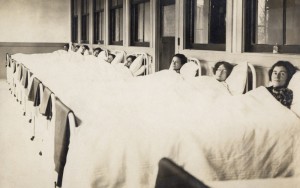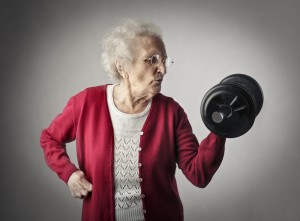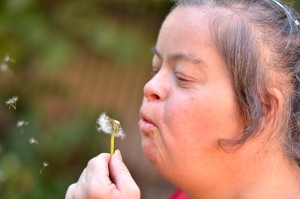
When we reflect on our life course, we can also consider that the ‘historical memory’ of who we are shapes our identities and who we are in our day to day interactions.
This paper by Icelandic scholars Stefánsdóttir and Traustadóttir effectively communicates the liberating potential of how narrative and experiences can be revisited with our peers and reshaped. The authors do so through working with four women labelled as having ‘intellectual disabilities’ (learning disabilities) living in Iceland whose lives and histories have been determined by institutionalisation and negative perceptions of their selfhood.
The paper sets the experiences of the four women both as individuals and as a collective counter-narrative to challenge oppressive institutional accounts of their lives and to articulate a new sense of understanding. The work describes the emotional and physical impacts of institutionalisation and the life events which create oppression. In particular, this relates to the reconstruction of personhood throughout the shared narratives of the trauma of forced sterilisation.
The authors say their article
documents how, through a four-year collaborative research process, the life histories became counter-narratives to dominant historical beliefs and stereotypes.

Four women with learning disabilities used their life histories to challenge the ‘historical memories’ about them in institutional records.
Methodology
The methodology is underpinned by the use of life histories and transformative resistance created by revisiting held personal narratives (Atkinson, 2004). This can then challenge the oppressive power of determined ‘historical memories’ in form of institutional records, medical notes, legislation and social opinions.
The authors argue that revisiting of the past can shape and amend the perspectives of how we are perceived and how we may perceive ourselves. They describe their approach as ‘inclusive life history research.’
The researchers involved people as ‘active participants or co-researchers in all stages of the research.’ The four women who participated were recognised as ‘life historians.’ They were all born before 1950, had been labelled with an ‘intellectual disability’ by Icelandic authorities and were willing to talk about their lives and experiences. The study lasted for three years and the researchers maintained a focus on the ethical aspects of confidentiality and consent throughout.
There were three stages to the data collection:
- Individual memory: four to seven unstructured, open-ended interviews which took the form of conversations with each of the women;
- Collective memory: during the second year a Women’s History Group met 40 times over two years so the women could explore their life histories more deeply together, aided by photographs and pictures;
- Historical memory: collection and analysis of official and institutional documentation about the women such as medical records and notes which the women gave permission to analyse and participated in the analysis; and collection and analysis of contextual social and political documentation, such as legislation and policy.
The methodology served as a redistribution of ownership and power through the exploration of personal life histories in the context of overt oppression of the individual women who were subjected to institutional processes and social marginalisation.
The experiences articulated by the women life historians in the study are emotionally underpinned by a sense of loss and overt use of institutional power and storytelling, especially in the inhibition of life choices and freedoms, such as forced sterilisation.
The researchers were aware of the need to build up trust through the recording of individual conversations, which used unstructured interviews and observation. There was also the practical facilitation of the Women’s History Group and how this served to act as a safe space to revisit and reflect on the meaning of life events and their shaping of what is termed ‘life histories’:
Although people’s struggles were often quiet, a number of life histories illustrate their agency and how, through resilience and acts of resistance, they found a way to protest their circumstances.
Results
This uses ‘life history research’ principles defined in the work of (Denzin, 1989). These principles highlight the way ownership and revisiting the meaning of events can lead to the development of new individual and collective memories.
The paper demonstrates how life historians can reshape their stories to challenge documentary historical memories and unpick their oppressive mechanisms of power. This then deconstructs such power and offers counter narrative to the attempts to define and stereotype the individual and their life course.
The results of the research and the research process point to a sense of liberation and ownership in which the power imbalance of traumatic life events became more balanced. The research also provides a powerful counter-narrative challenge the domination of historical memory determined by medical records.
Through their work as life historians the authors note that the four women co-reseachers
told stories of negative and hurtful experiences, such as having been sterilized against their will and being sent to institutions away from their families. These and other difficult experiences in their lives were primarily related to the negative views and understanding of intellectual disability.
However, they also note that, very positively
even if the women had experienced prejudice and social exclusion they did not see themselves as victims, but as survivors who had resisted and fought against the discrimination and inequality.
The historical anchoring of dominant views and the creation of a fixed essentialist story through the concept of ‘historical memory’ can be explored further. This is through that the impact of such established artefacts and discourses are readily felt through the intrusion of social exclusion, stigma, discrimination and physical forms of oppression.
The liberation which is explored through the experiences of the four women, highlights the impact of understanding the rawness of such experiences and their weighted power.

The women had faced oppression and personal trauma, but had found ways to resist and saw themselves as survivors.
Conclusions
The authors conclude that
This paper has explored the connection between individual memory, collective memory and historical memory with the aim of understanding how life histories can become counter-narratives against dominant and oppressive beliefs and stereotypes of people with intellectual disabilities.
By presenting the life histories in this manner, the contradictions between the individual and the historical memory become apparent. The life histories reflect the ways in which the women’s personal experiences emerged as resistance against the public history and the historical memory manifested in public records.
Strengths and limitations
The strength of this research is that it is co-produced in collaboration with the women whose histories are the subject, and the study is anchored by their agency and voice. This is richly communicated throughout the paper in how the concept of the collective and individual memory forms a rebuttal and anchoring of the singular institutional ownership of historical memory.
The exploration of such historical memories, though fraught with ethical and moral complexity, can enhance and promote autonomy and self-determination. For me, as a blogger with extensive experience of inequalities it also highlights the benefits of peer collectivism and developing ongoing critical research.
The limitations of the work are also framed by the methodology which was used. This is seen in how the work is determined by a collaborative approach. It could be critiqued that though the evolved development of counter narrative at a individual and collective memory level was enhanced and voiced, there was subtle power still present.
The reinterpretation of historical memory, provided an opportunity to challenge existing artefacts of institutional power. This was inherently positive, but for me there was a consideration that this embedded historical memory still remained in research artefacts such as written notes.

‘Historical memory gains precedence when collective memory, including memories of individuals, fades out or when groups who experienced certain events pass away.’
Summing up
In reflecting on this research we might want consider if the paper itself can become historical memory for the future. This is in order to make a full challenge to such power and essentialist inequalities, to offer critical discourse and to evidence traumatic and emotional experiences. It certainly makes me consider, that when challenging historical memory and the ‘evidence’ of our prescriptive past, that we should be able to determine its future use as well.
The paper clearly explores the relationship of historical memory, collective memory and individual memory and the strengthening of bonds of collective challenge and counter-narrative. This is important from a therapeutic perspective, but also through the refusal to accept a simple, singular construction of unique individual identities and multi-layered lives.
As someone who has experienced extensive traumatic life course events, this paper has made me reflect and contemplate how the relationships which I take part in day to day, hold part of my historical record and a key to the understanding of my life course and experiences when I have gone. As the authors reflect:
Historical memory gains precedence when collective memory, and this includes memories of individuals, fades out or when groups who experienced certain events pass away.
It is then important to address the balance of how a life course and its experiences are remembered and expressed and who owns this residual memory across a wider measurement of time. In exploring the study findings it is possible to relate to the ideas of user research, critical research, peer support and its varying forms and structures embedded in its ideas of collectivism. For me, what is derived and understood from the experiences which are communicated is infinitely more.
Link
Stefánsdóttir. G and Traustadóttir. R (2015). Life histories as counter-narratives against dominant and negative stereotypes about people with intellectual disabilities, Disability & Society, 30 (3) pp.368-380. [Abstract]
References
Atkinson, D. (2004). Research and Empowerment: Involving People with Learning Difficulties in Oral and Life History Research. Disability and Society 19 (7) pp. 691–702. [Abstract]
Denzin, N. K. (1989). Interpretive Biography. London: Sage Publications.

My new research blog for @SocialCareElf Life histories as counter-narratives for people with learning disabilities https://t.co/FUcrfCdoar
Today @AlresfordBear considers how becoming a life historian can challenge institutionalisation http://t.co/G8uyIyofet #learningdisability
How emancipatory research helped four women with learning disabilties reclaim their life history http://t.co/FvtlkDkxA0 by @AlresfordBear
When the memories of your life are medical and institutional records @AlresfordBear investigates how to resist http://t.co/L2u2Uf7B03
Don’t miss: Life histories as counter-narratives for people with learning disabilities http://t.co/qQDEO73VQx #EBP
Life histories as counter-narratives for people with #learningdisabilities http://t.co/aEtVPsIdJK
Life histories as counter-narratives for people with learning disabilities https://t.co/OuE0PzEMaq @SocialCareElf @AlresfordBear
Life histories as counter-narratives for people with learning disabilities https://t.co/REsWse1URy via @sharethis
Heres my research blog for @SocialCareElf Life histories as counter-narratives for people with learning disabilities https://t.co/YFJWqabUvu
@AlresfordBear @SocialCareElf Just got around to reading this. Thanks for the piece. Excellent stuff – really interesting.
Life histories as counter-narratives 4 people w/ #learningdisabilities http://t.co/VLUiyqi19O #community4all http://t.co/Nqx6afKJLt